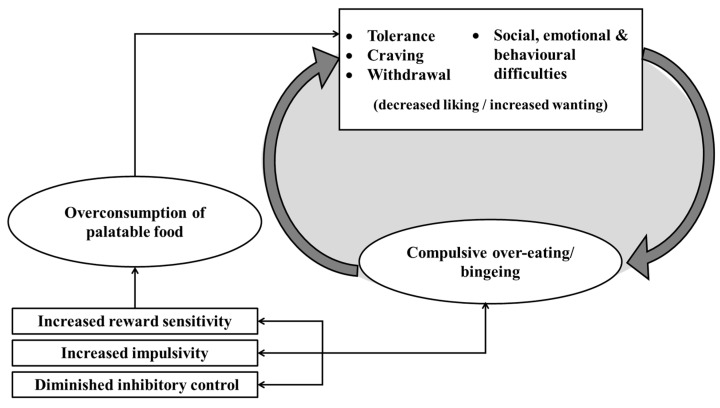Figure 1.
The proposed cycle of ‘food addiction’. Initial vulnerability for the over-consumption of palatable food is marked by increased impulsivity and reward sensitivity, as well as a diminished capacity for inhibitory control. As a consequence of overconsumption, individuals experience tolerance, craving and withdrawal, along with a range of social, emotional and behavioural difficulties such as weight stigmatisation and feelings of guilt and shame. With repeated consumption of these foods, the individual is likely to habituate to the hedonic properties of the food, resulting in reduced enjoyment or liking. These changes are also accompanied by an increased desire or ‘wanting’ for the food [104,105,106,107,108]. In an attempt to relieve these symptoms, the individual ‘self-medicates’ by increasing food consumption, which can result in compulsive or binge eating behaviour, thus creating a cycle of addiction. It should be noted that the extent to which each of these mechanisms is experienced varies considerably across individuals. In particular, initial vulnerability to addiction may be related to individual differences in reward sensitivity, impulsivity and inhibitory control [110,111,112,113].

